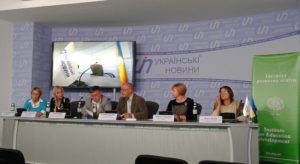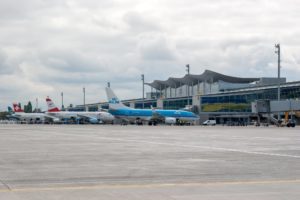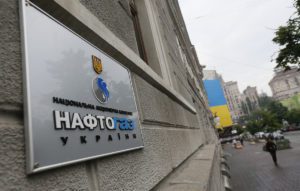
Pharmacy sales in Ukraine in January-October 2019 in monetary terms decreased by 3.37% compared to the same period in 2018 and amounted to UAH 66.663 billion. Business Credit told Interfax-Ukraine over the period pharmacy sales in natural terms decreased by 9%, to 1.139 billion packages.
According to the company, retail sales of medicines in January-October in monetary terms fell by 4.79%, to UAH 53.987 billion, in natural terms by 16.8%, to 693.988 million packages.
The average weighted price of all categories of pharmacy retail products in January-October amounted to UAH 58, medicines some UAH 77.79.

Housing commissioning in Ukraine through January-September 2019 increased 48% compared to the same period in 2018, to 7.743 million square meters.
As Ukraine’s State Statistics Service said, the report does not include information from Russian-occupied areas: Crimea, Sevastopol and parts of Donetsk and Luhansk regions.
According to the service, the share of commissioning of houses built without permits for construction work and put in operation under temporary commissioning rules was 25.6% (1.98 million square meters).
According to the report, 4.799 million square meters of housing was commissioned in urban areas in the first nine months of 2019, and 2.944 million in rural areas. Some 54.1% of total volume of housing was commissioned in single-family houses, and 45.9% in houses with two and more apartments.
Over the period, 87,374 apartments were commissioned, including 61,500 in urban areas and 25,900 in rural areas. Average area of apartments was 88.6 square meters.
Some 56.1% of housing was commissioned in Kyiv city and region, as well as Lviv, Ivano-Frankivsk and Odesa regions in the first nine months of 2019, in particular in Kyiv city – 934,500 square meters.
The decline in the volume of commissioning was seen in Kharkiv region – by 8.1%, to 262,700 square meters.
The biggest growth in housing commissioning year-over-year (not taking into account temporary commissioning rules) was seen in Chernivtsi (by 169.8%, to 356,700 square meters), Mykolaiv (by 126.4%, to 67,900 square meters), Ternopil (by 116.3%, to 268,900 square meters), Ivano-Frankivsk (by 120.2%, to 569,900 square meters) and Kirovohrad regions (by 120.1%, to 56,500 square meters).

The insurance companies of Ukraine in January-September 2019 collected net premiums in the amount of UAH 30.149 billion, which is 18.8% more than for the same period in 2018, the National Commission for the State Regulation of the Financial Services Market has said. According to the regulator, the volume of gross insurance premiums collected by insurers for the specified period amounted to UAH 40.562 billion (16.3% more).
The commission notes that an increase in gross insurance premiums was recorded for almost all types of insurance. In particular, premiums in car insurance KASKO, OSAGO, Green Card rose by UAH 1.7 billion (18%), in medical insurance by UAH 1.028 billion (40.3%), insurance against fire risks and risks of natural disasters by UAH 776.6 million (25.4%), property insurance by UAH 618.1 million (13.7%), life insurance by UAH 552.6 million (20.2%), insurance of medical expenses by UAH 546.7 million (58.5%), cargo and luggage by UAH 133.4 million (6.5%).
The share of net insurance premiums in gross insurance premiums for the nine months of 2019 amounted to 74.3%, which is 1.5 percentage points more than in the first half of 2018.
In January-September, insurers paid UAH 9.624 billion in net insurance claim fees (13.7% more). The level of net payments decreased from 33.3% to 31.9%
According to the regulator, gross insurance payments increased by 12.5%, to UAH 9.846 billion. The level of gross payments decreased from 25.1% to 24.3%.
A high level of gross insurance payments is observed in car insurance (an increase of 14%), medical insurance (by 28.4%), financial risks (by 5.3%), and medical expenses (by 18.8%).

The Education and Science Ministry of Ukraine has announced the opening of the Ukrainian Institute for Education Development which will be in charge of the implementation of the New Ukrainian School Project. “The Ukrainian Institute for Education Development has opened. This agency will replace the Institute for Education Content Modernization to implement the New Ukrainian School Project and later all of the latter institution’s functions will be passed to it,” the ministry said.
Education and Science Minister Hanna Novosad noted that the Institute for Education Content Modernization was not always effective and successful during the implementation of the New Ukrainian School Project.
Vadym Karandiy has been appointed as Head of the new Ukrainian Institute for Education Development.
He headed that Ukrainian Center for Education Quality Assessment from 2015 until 2019, according to the ministry’s press service.
The ministry also said that the transformation of the old institution will be held until 2021.
The priority tasks of the Ukrainian Institute for Education Development will be coordination of the introduction of new education standards for students of the 3rd and 4th grades, assessment of quality of pre-school education with the help if the international tool ECERS, participation in the development of the national standards for secondary education and a typical secondary education program, support for professional development and growth of teachers, development of effective procedures for assessment of study books and piloting them during the selection of 4th grade students.

Kyiv Sikorsky Airport (Zhulyany) is to extend its runway and improve the characteristics of landing approach systems, Denys Kostrzhevsky, head of the airport’s board of directors, has said. “Kyiv Airport has a runway whose length is 2,350 meters. It is located in the central part of the city. Accordingly, its landing approach systems allow aircraft to land and take off under certain weather conditions. To be able to service aircraft in any weather conditions and handle larger aircraft, Kyiv Airport needs to upgrade the category of the airfield,” he told Interfax-Ukraine in an interview.
Kostrzhevsky noted that a master plan for the reconstruction of the airfield had already been developed, it has five different options. Each of them foresees an extension of the runway by 550 meters, improvement of the characteristics of landing approach systems (lighting navigational aids and radio navigation equipment). The estimated cost of the project ranges from EUR 80 million to EUR 100 million.
“The city needs to solve two problems. The first is to allocate plots of land, the second is either to disburse or raise money. There are different ways to raise money: one may take a loan or call a concession tender. If the city decides on concession, then, of course, Master Avia, the airport operating company, will participate in this tender,” the top manager said.
If such a decision is not taken, there may be loans, he added. “Perhaps it will be financing from the municipal budget or there will be a lease with an investment obligation. We do not know this,” he said.
According to him, in particular, the airport asks to allocate 12 hectares of land at the ends of the runway. Currently, the documents are under approval.
“We are in dialogue with the authorities. How quickly the approval will be depends on Kyiv City State Administration and Kyiv City Council. They have been there for eight months. I hope we will get certain results soon,” Kostrzhevsky said.

The Cabinet of Ministers of Ukraine will conduct an audit of the financial statements of NJSC Naftogaz Ukrainy, MP Oleksiy Honcharenko has said.
He posted a photocopy of a government resolution on his Facebook page that says that at its meeting on Wednesday, the Cabinet approved the appointment of Deloitte & Touche Ukrainian Services Company (USC) as a subject of auditing activities to provide services of the mandatory audit of financial reporting.